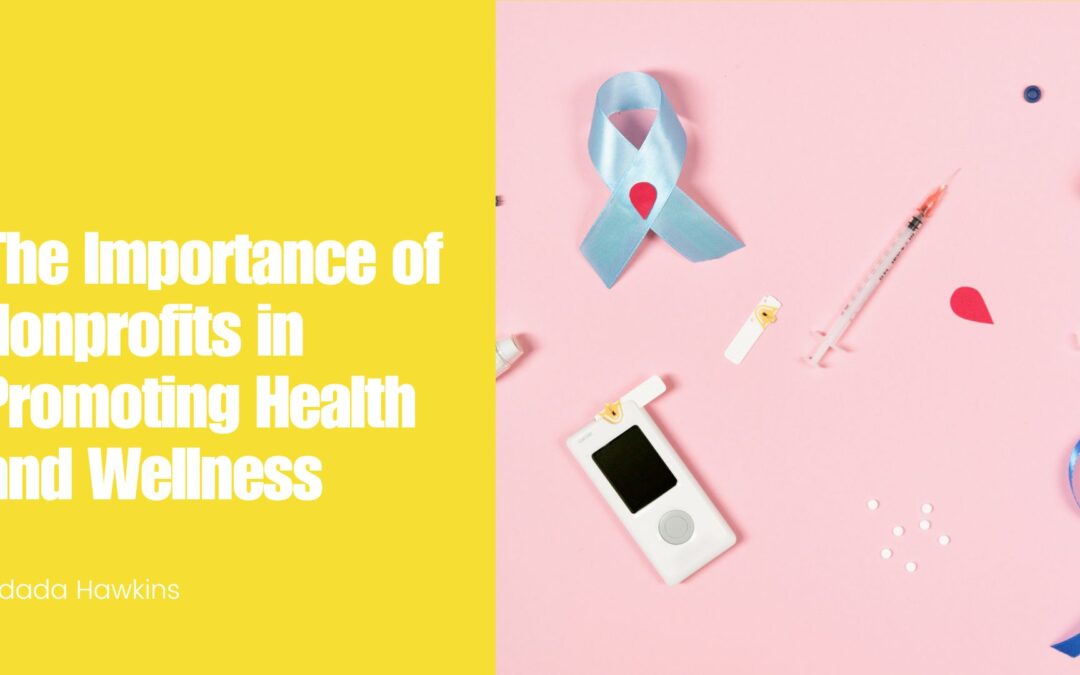In a world where healthcare costs are skyrocketing and access to quality healthcare remains a challenge for many, nonprofit organizations play a crucial role in promoting health and wellness. These organizations are driven by a mission to serve the community and address the unmet needs of vulnerable populations. Through their programs, initiatives, and advocacy efforts, nonprofits have the power to make a significant impact on the well-being of individuals and communities.
Addressing Health Disparities
Nonprofits play a vital role in addressing health disparities, which are often influenced by socioeconomic factors, discrimination, and limited access to healthcare. These organizations work tirelessly to bridge the gaps in healthcare by reaching out to underserved populations, providing essential medical services, and advocating for equitable policies. Nonprofits often establish clinics, mobile healthcare units, and outreach programs to ensure that vulnerable communities have access to preventative care, screenings, vaccinations, and other essential healthcare services. By targeting underserved populations, nonprofits help to reduce health disparities and ensure that everyone has a fair chance at achieving optimal health outcomes.
Promoting Preventative Care
Preventative care is the cornerstone of a healthy society, and nonprofits are at the forefront of promoting preventive healthcare practices. These organizations focus on raising awareness about the importance of regular check-ups, vaccinations, screenings, and lifestyle modifications to prevent the onset of chronic diseases. They conduct educational campaigns, host workshops, and provide resources to empower individuals with the knowledge and tools to take charge of their health. Nonprofits also collaborate with healthcare providers to offer low-cost or free preventative services to those who cannot afford them. By promoting preventative care, nonprofits not only improve individual health outcomes but also alleviate the burden on the healthcare system by reducing the incidence of costly and avoidable medical conditions.
Community Engagement and Education
Nonprofits excel in community engagement and education, playing a pivotal role in empowering individuals to make informed decisions about their health. These organizations organize health fairs, workshops, and support groups to engage with the community and provide information on a wide range of health topics. They collaborate with schools, workplaces, and community centers to implement health education programs, teaching individuals about healthy eating, exercise, mental well-being, and disease prevention. By fostering health literacy and equipping individuals with the necessary knowledge, nonprofits empower communities to make healthier choices and lead healthier lives. Furthermore, these organizations act as advocates for public health policies, lobbying for regulations and initiatives that promote wellness and improve the overall health of the population.
Filling Service Gaps
Nonprofits often step in to fill service gaps that exist within the healthcare system. They provide support and resources for specific health conditions or populations that may not receive adequate attention from mainstream healthcare providers. For example, nonprofits focused on mental health offer counseling services, helplines, and support groups to individuals struggling with mental health issues. Nonprofits also extend their reach to marginalized communities, including homeless individuals, refugees, and low-income families, providing access to basic healthcare, hygiene products, and essential resources. By filling these service gaps, nonprofits ensure that no one is left behind and that everyone has the opportunity to receive the care and support they need to lead healthy and fulfilling lives.
Nonprofits play a crucial role in promoting health and wellness by addressing health disparities, promoting preventative care, engaging communities, and filling service gaps. Their dedication, passion, and community-driven approach make a significant impact on the well-being of individuals and communities. As we navigate the complex challenges of healthcare access and affordability, nonprofits continue to be vital allies in building healthier societies. Their tireless efforts, advocacy, and services create a more equitable healthcare landscape where everyone has the opportunity to lead a healthier and happier life. Supporting and recognizing the invaluable contributions of nonprofits is essential to fostering a society that prioritizes health and well-being for all.

